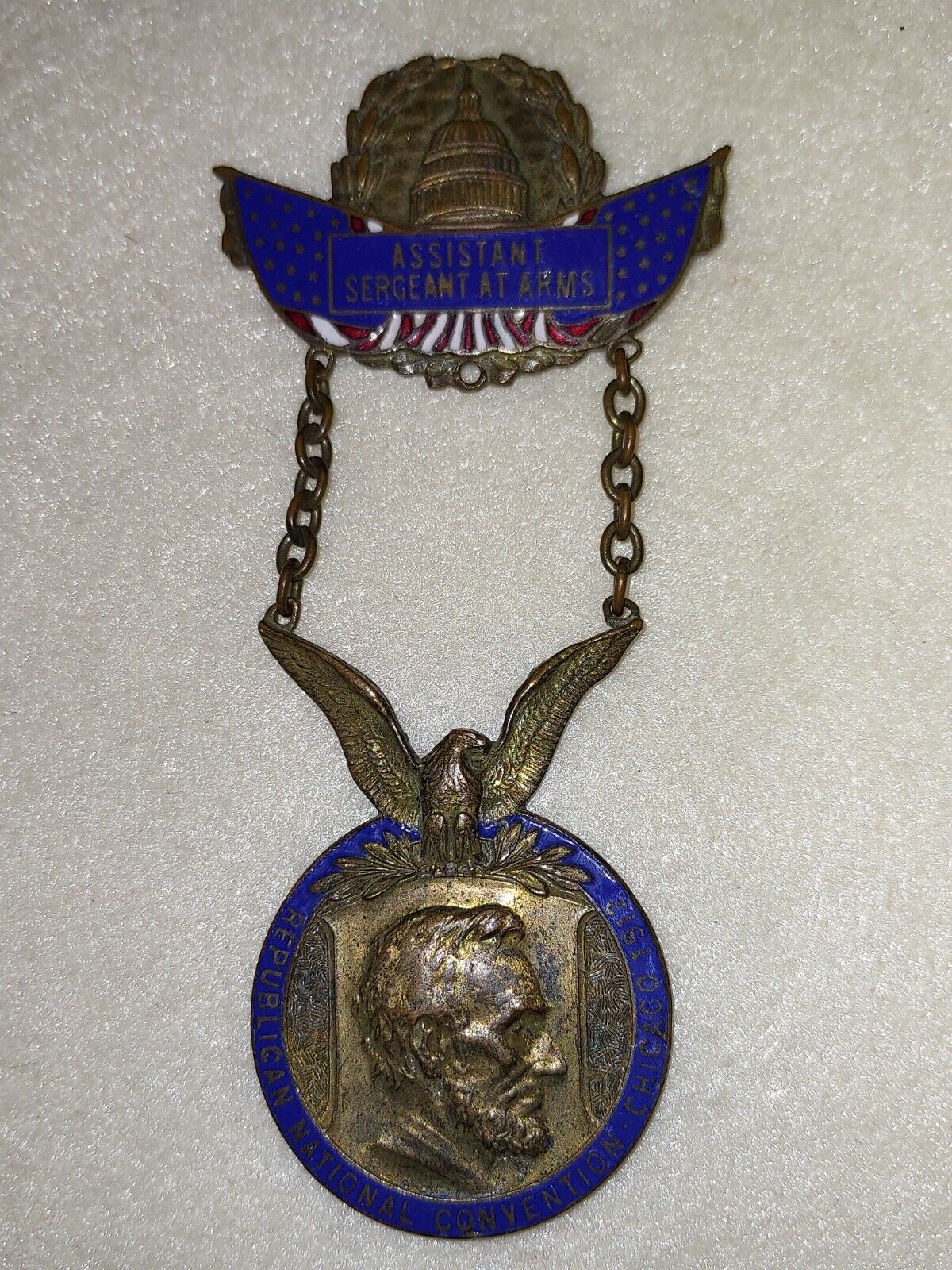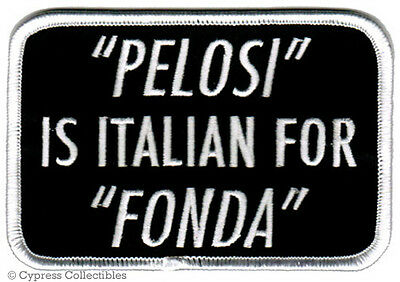-40%
1912 Republican National Convention Chicago IL. Assistant Sergeant at Arms Badge
$ 39.6
- Description
- Size Guide
Description
2" wide X 4 1/2" long.The 1912 Republican National Convention was held at the Chicago Coliseum, Chicago, Illinois, from June 18 to June 22, 1912. The party nominated President William H. Taft and Vice President James S. Sherman for re-election for the 1912 United States presidential election. Sherman died days before the election, and was replaced as Republican vice-presidential nominee by Nicholas M. Butler of New York. The ticket went on to place 3rd in the November election behind former president Theodore Roosevelt, who ran under the banner of the new Progressive or "Bull Moose" Party, and Democratic Governor Woodrow Wilson.
This convention marked the climax of a split in the party, resulting from a power struggle between incumbent Taft and former president Theodore Roosevelt that started in 1910. Politically liberal states for the first time were holding Republican primaries. Though Roosevelt had endorsed Taft as his successor, Taft's drift to the right had alienated Roosevelt, who launched a challenge to Taft's re-nomination. Roosevelt overwhelmingly won the primaries — winning 9 out of 13 states. Both Taft and Roosevelt lost their home states to each other. Senator Robert M. La Follette, a reformer, won two states, including his home state of Wisconsin. Through the primaries, Senator La Follette won a total of 36 delegates; President Taft won 48 delegates; and Roosevelt won 278 delegates. However 36 more conservative states did not hold primaries, but instead selected delegates via state conventions. For years Roosevelt had tried to attract Southern white Democrats to the Republican Party, and he tried to win delegates there in 1912. However Taft had the support of black Republicans in the South, and defeated Roosevelt there.
Entering the convention, the Roosevelt and Taft forces seemed evenly matched, and a compromise candidate seemed possible. Taft was willing to compromise with Missouri Governor Herbert S. Hadley as presidential nominee; Roosevelt said no. The Taft and Roosevelt camps engaged in a fight for the delegations of various states, with Taft emerging victorious, and Roosevelt claiming that several delegations were fraudulently seated because of the machinations of conservative party leaders including William Barnes Jr. and Boies Penrose. Following the seating of the anti-Roosevelt delegations, California Governor Hiram Johnson proclaimed that progressives would form a new party to nominate Roosevelt.[4] Though many of Roosevelt's delegates remained at the convention, most refused to take part in the presidential ballot in protest of the contested delegates. Roosevelt ultimately ran a third party campaign as part of the Progressive Party (nicknamed the "Bull Moose Party"). Taft and Roosevelt both lost the 1912 election to the Democratic nominee, Woodrow Wilson.
Like Taft, Vice President James S. Sherman of New York was renominated by the party. Though Taft and Sherman did not get along early in their tenure, the two became closer allies as Taft's split with Roosevelt deepened, and Taft did not object to the re-nomination of Sherman. Taft's allies sought progressive leaders such as Idaho Senator William E. Borah or Vermont Governor John A. Mead to join the ticket, but both declined to be considered. Missouri Governor Herbert S. Hadley and former Vice President Charles Fairbanks were also mentioned as possibilities. Sherman died shortly before the election, and was not replaced on the ticket. In January, after the election had already been decided, Republican leaders appointed Columbia University president Nicholas Butler to fill out the ticket for the purposes of receiving electoral votes.
We attempt to provide photos that show the true condition of our eBay items. If, after the item is delivered, you are not completely satisfied, please email us within 14 days of delivery, get the item back to us within 4 days after notification, and we will refund your eBay bid payment after we receive the returned item. Buyer pays return shipping.
We are happy to send you positive feedback after your payment, and ask that you do the same for us when your item arrives safely, quickly and as described. Please take the few minutes needed to give us feedback so that we can know how to improve our transactions with you, our customers.
Please make your payment within 72 hours from end of auction.
We will combine items to help you save on the cost of shipping. E-mail us and wait for an invoice before making your payment on multiple items.
Items are shipped insured priority mail with tracking.













